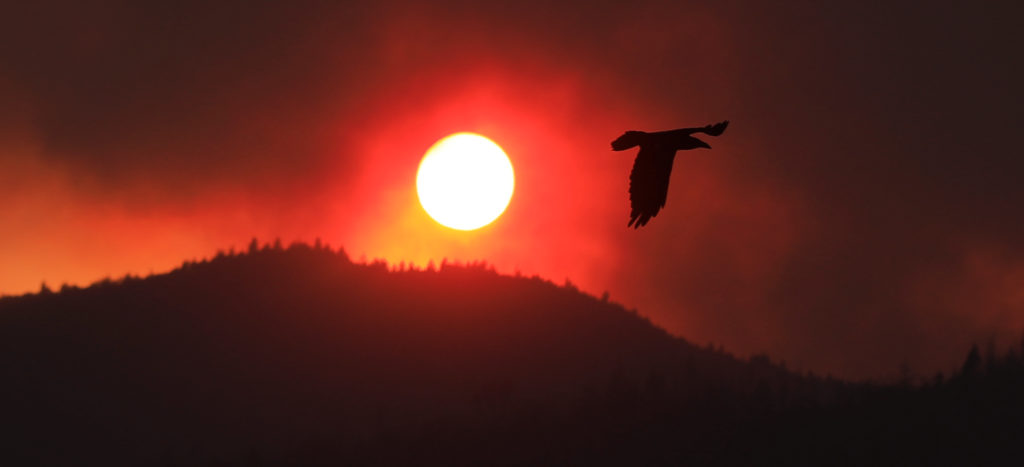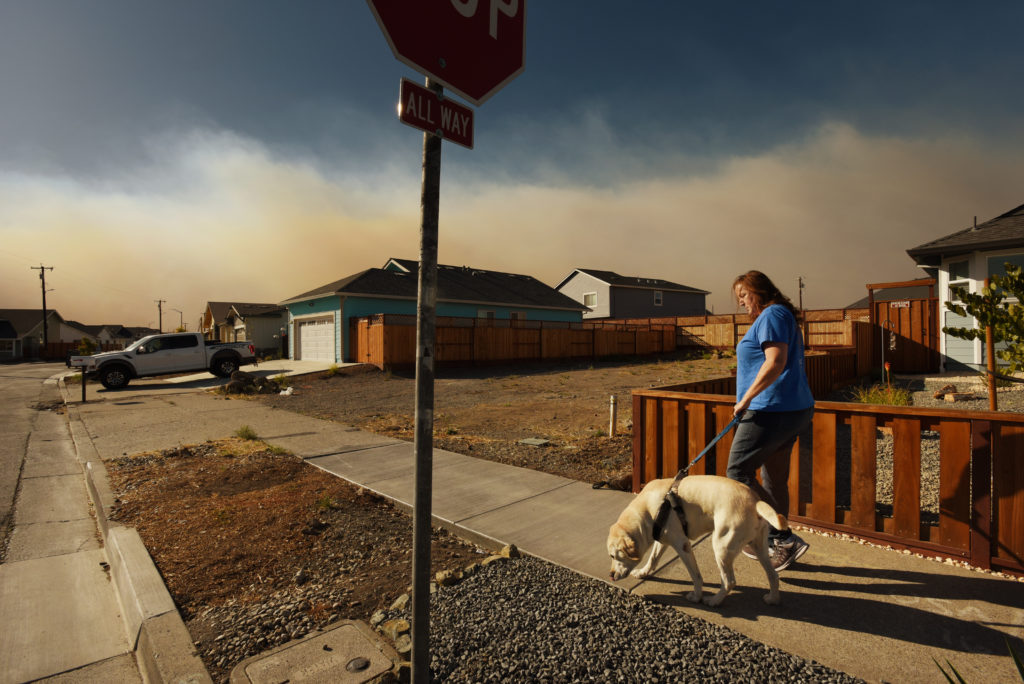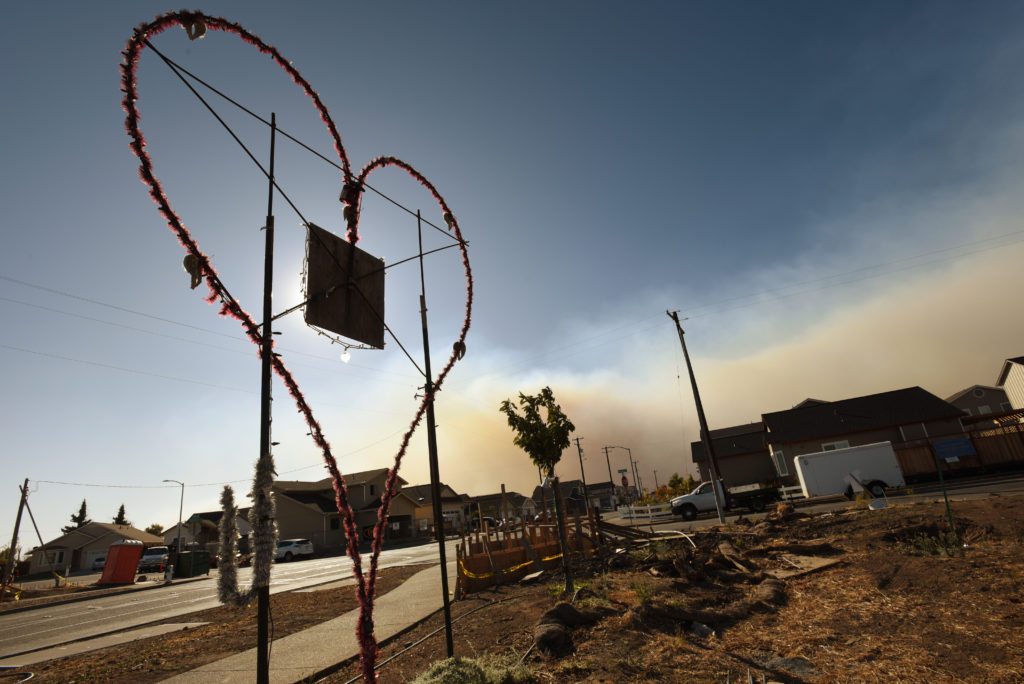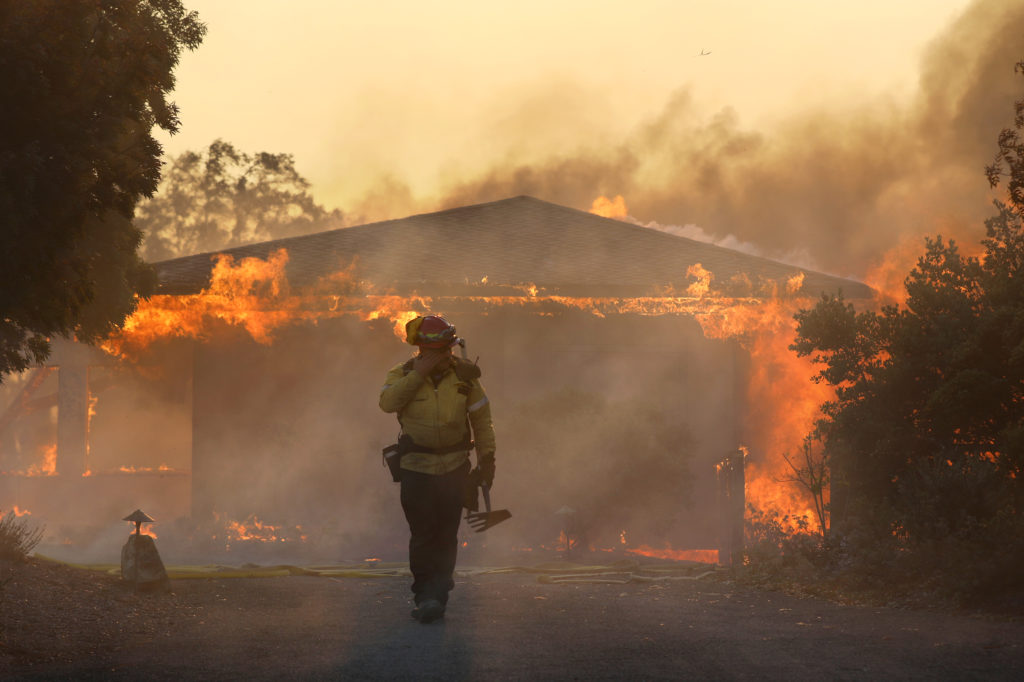To recover from a wildfire takes time and involves demanding tasks for those affected: calls to insurance companies, clean up of debris, finding a new place to live, rebuilding a home, and resuming regular routines with work or studies, among many other things.
One task that often fails to make the long list of things to do, however, is taking care of your mental health. But according to experts on trauma and post-traumatic stress disorder (PTSD) this is an important aspect of wildfire recovery.
Healdsburg resident Dr. Adrienne Heinz, a clinical and research psychologist specializing in trauma and PTSD, says surveys indicate that one-quarter of wildfire survivors develop PTSD symptoms while one-third experience depression and anxiety. Left untreated, these conditions can have a detrimental effect on a person’s social life and wellbeing.
“What we know from [studying] people post 9/11 and other disasters is that, if you don’t give folks the resources they need to bounce back, the recovery can be fraught with struggles: loss of relationships and jobs, substance abuse disorders and mental health struggles … the list goes on,” she says.
Heinz is part of a team that developed mental health resources for local residents following the 2017 North Bay fires, including the mobile app Sonoma Rises. Intended for users ages “13 to 113,” it gives access to a variety of treatment options to suit different preferences and needs, including trauma-informed yoga, self-help tools such as breathing techniques and meditation, as well as individual and group therapy.
“We felt like an app was the perfect medium because people are on their phones all the time anyway,” Heinz explains, adding that those reluctant to see a therapist in person (therapy is the recommended treatment for PTSD) might be more inclined to interact with mental health professionals through an app.
In the wake of last year’s Kincade fire, the amount of Sonoma Rises users has increased. Many lost homes, part of their school, or were otherwise displaced by the October 2017 fires and have reported high levels of anxiety, including feeling “keyed up” and “re-triggered,” following this recent event.
Heinz’s co-researcher, psychologist Dr. Shannon Wiltsey-Stirman, explains that previous trauma makes a person more susceptible to develop post-traumatic stress disorder. While many wildfire survivors will initially experience symptoms such as mentally replaying the trauma, avoiding situations that recall an aspect of the event, becoming irritable or hypervigilant about safety, lingering symptoms may be a sign that a person is developing PTSD.
Lack of timely and adequate care following a traumatic experience like a wildfire can also increase the risk of developing PTSD.
Petaluma therapist Marty Schwebel, who works as a volunteer chaplain for the Petaluma Police Department, says he believes we don’t have proper rituals in our society to process grief, and that he has noticed many delay getting treatment until the “adrenaline” of recovery tasks wear off.
Schwebel believes trauma-informed yoga can be helpful. “The body keeps the score,” he says, citing the title of the 2014 bestselling book by Boston-based psychiatrist Bessel Van der Kolk.
Van der Kolk’s main premise in his book is that trauma is remembered in the body — it physically “reshapes both body and brain — and that treatments, like yoga, can help people who’ve experienced trauma by bringing more awareness to their bodies, thoughts and emotions.
Research supports Van der Kolk’s theory: Using a combination of traditional therapy techniques and alternative treatments such as EMDR (Eye Movement Desensitization and Reprocessing) and yoga can help alleviate stress and anxiety induced by traumatic events.
By increasing accesses to these kinds of evidence-based treatments, as well as other no-cost mental health services, Heinz and the team behind the Sonoma Rises app hope they will be able to continue provide support to those affected by wildfires in Sonoma County and beyond (the team is keeping their work “open access” so that other communities can use and customize the app).
“If this is to be our new normal,” says Heinz, “we have to prioritize our mental well-being. Without that other things in life start to erode.”
Download the Sonoma Rises app for iPhone here and for android here. Visit mysonomastrong.com for more information and support. More free mental health resources available here.














